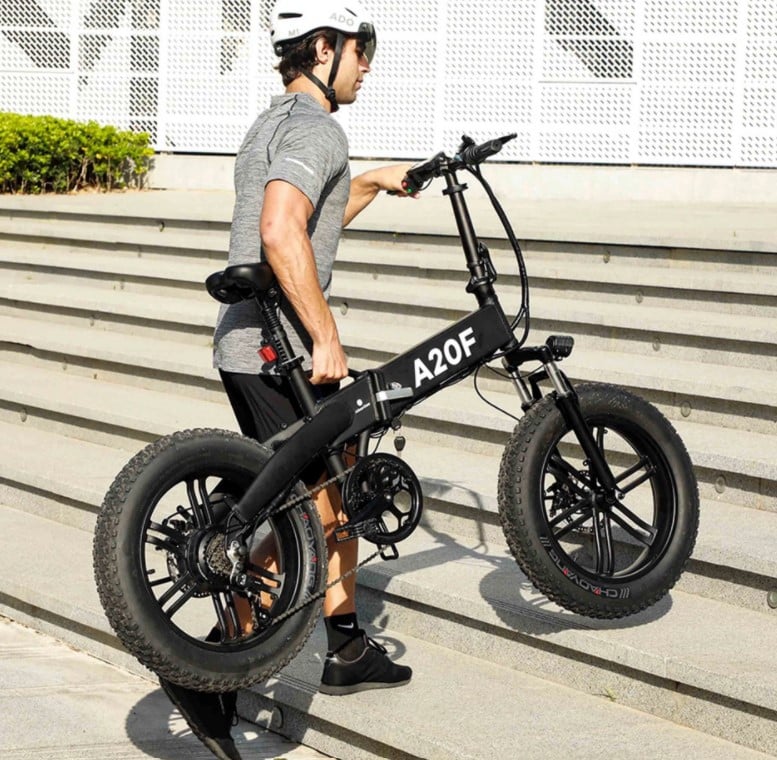Electric Bicycle Tax Credit 101: Everything You Need to Know to Save Big
Are you considering buying an electric bike (e-bike) but not sure if you can afford it? You may be eligible for the electric bicycle tax credit, a government program that provides financial incentives to encourage the use of environmentally-friendly transportation. In this article, we’ll delve into the details of the e-bike tax credit and how it works. We’ll explain what qualifies as an e-bike, how much the tax credit is worth, and how to claim it. Whether you’re a seasoned e-bike rider or new to the scene, this tax credit can help make your green transportation dreams a reality. So, if you want to save money and reduce your carbon footprint, read on to learn more about the e-bike tax credit.
Electric bikes, or e-bikes, have gained widespread popularity as a reliable, eco-friendly, and versatile mode of transportation. The boom in cycling in 2020 saw more Americans turning to both traditional and electric bikes for commuting, overlanding, hunting, and fishing. In recognition of the numerous benefits of e-bikes, such as reduced emissions and traffic congestion, as well as increased exercise for riders, two congressmen have proposed the E-Bike Act. This legislation, introduced in early 2021, aims to incentivize the use of electric bikes through financial rewards similar to those previously offered for electric cars. By encouraging the adoption of more environmentally friendly modes of transportation, the E-Bike Act hopes to promote a cleaner and healthier future for all.
What is the E-Bike ACT?
The Electric Bicycle Incentive Kickstart for the Environment (E-BIKE) Act, also known as the E-Bike Act, was introduced by Congressman Jimmy Panetta (D-Calif.) and Earl Blumenauer (D-Ore.) on February 11th, 2021. The purpose of this legislation is to encourage the use of electric bikes, or e-bikes, by offering a consumer tax credit against income taxes. Both congressmen are advocates for the use of e-bikes as a means of transportation that provides greater distance, speed, and accessibility, while also helping to reduce carbon emissions. In fact, Congressman Earl Blumenauer, who is also the Congressional Bike Caucus Chairman and a known bike enthusiast, believes e-bikes should be widely available as a legitimate and practical form of transportation that helps to reduce carbon emissions. Electric bikes have the potential to reduce car trips and emissions by providing a fast and reliable alternative mode of transport, and they can be used in both urban and rural environments by riders of all ages and physical abilities. In addition to reducing the strain of pedaling and physical exertion, e-bikes can still provide a good form of exercise.
As the government looks for ways to reduce carbon emissions and address the climate change crisis, several congressmen and women have recognized the potential of electric bikes to take cars off the road and provide a sustainable, environmentally-friendly mode of transportation that keeps people moving, active, and connected.
What electric bycicle would qualify for the tax credit?
According to the E-Bike Act, a qualified electric bike is defined as a “two-wheeled vehicle equipped with an electric motor of fewer than 750 watts that is capable of propelling such vehicle.” This definition covers some of the Nanrobot bikes and other popular electric bikes on the market, with the exception of those with 1000-watt motors. In order to be eligible for the tax credit, e-bikes must be classified as a class 1, class 2, or class 3 electric bike and must be equipped with pedals capable of propelling the vehicle, a saddle or seat for the rider, and an electric motor under 750 watts. It’s important to note that in order to claim the tax credit, the e-bike must be purchased new in the United States by the taxpayer and cannot be a lease or second-hand purchase.
How much tax credit would I get from the electric bicycle tax credit?
The E-Bike Act offers a consumer tax credit of up to 30% of the cost of purchasing an electric bike, with a maximum credit amount of $1,500 or 30% of the total cost, whichever is less. This credit amount is doubled in the case of a joint tax return where two family members have purchased e-bikes. The credit is available to individuals once every three years and can help to offset a significant portion of the cost of buying an e-bike.

What is the status of the E-Bike Act? Has it passed?
- Rep. Blumenauer, OR
- Rep. Thompson, CA
- Rep. Pressley, MA
- Rep. Chu CA
- Rep. Sires, NJ
- Rep. Lowenthal, CA
- Rep. Dean, PA
- Rep. Moore, WI
- Rep. Quigley, IL
- Del. Norton, DC-At Large
- Rep. Pocan, WI
- Rep. Brownley, CA
- Rep. DeGette, CO
- Rep. McGovern, MA
- Rep. Evans, PA
- Rep. Levin, CA
- Rep. Lofgren, CA
- Rep. McCollum, MN
The E-Bike Act still has a long and complex journey to become law. It must pass in the House, then the Senate, and be approved by the President before it can be implemented.
However, there is precedent for the Act to receive support, as the federal government has previously used economic incentives to address the climate change crisis and encourage the adoption of more environmentally-friendly behaviors, such as driving electric vehicles. The introduction of buyer tax credits for hybrids and plug-in electric cars has been successful, and e-bike enthusiasts hope that the E-Bike Act will see similar success.
E-bike riding is a more energy-efficient and environmentally-friendly mode of transportation, as bikes are 25 times more energy-efficient than cars. Currently, financial incentives for e-bikes are only available at the local level in California, where Senate Bill 400 expanded the state’s incentives for trading in polluting cars for vouchers that can be used for bike share and e-bikes. If the E-Bike Act is passed, it would be the most financially rewarding e-bike incentive currently available in the United States.

Make a Difference with the E-Bike Tax Credit: Simple Ways to Support the Cause
Offering financial incentives to buy electric bikes helps make them a more affordable and attractive transportation option for average Americans. If passed, the E-Bike Act would give more people affordable access to quality electric bicycles, ease traffic congestion and help us lower the country’s carbon emissions, all while keeping Americans active and healthy.
If passed, the Act would benefit not only urban commuters but all eBike users. Hunters, anglers, and overlanders who enjoy using eBikes recreationally would all be eligible.
The advocacy group, People For Bikes, has supported the Act and has made it easy for eBike enthusiasts to email their representatives. If you’d like to help pass the Bill, click here to encourage your local representative to co-sponsor the Bill.
In the end...
If it passes, the E-Bike Act will make electric bikes more accessible and have a massive benefit to the environment. The price limit would cover the entire QuietKat range of electric bikes, making it even easier for riders to switch to eBiking.
Owning an eBike opens the door to endless possibilities. There are countless backcountry trails and hard-to-reach hunting spots that our electric mountain bikes can help you reach. You’d be hard-pressed to find backcountry terrain our electric bikes can’t handle. With an eBike, you can explore so much more than you can with a traditional bike and do your bit for the environment. Explore the full range of Next Level Rider eBikes today.
